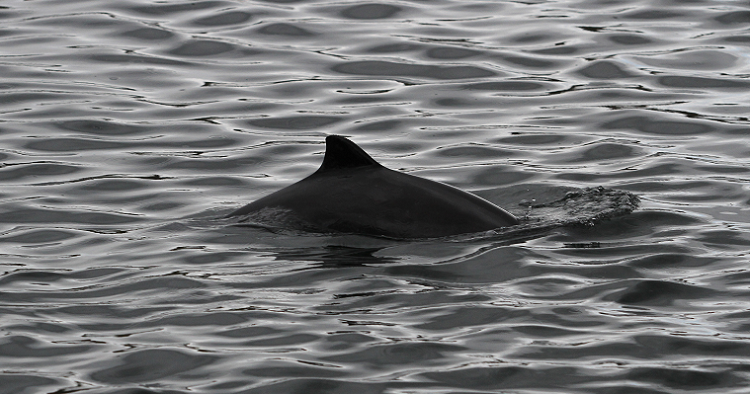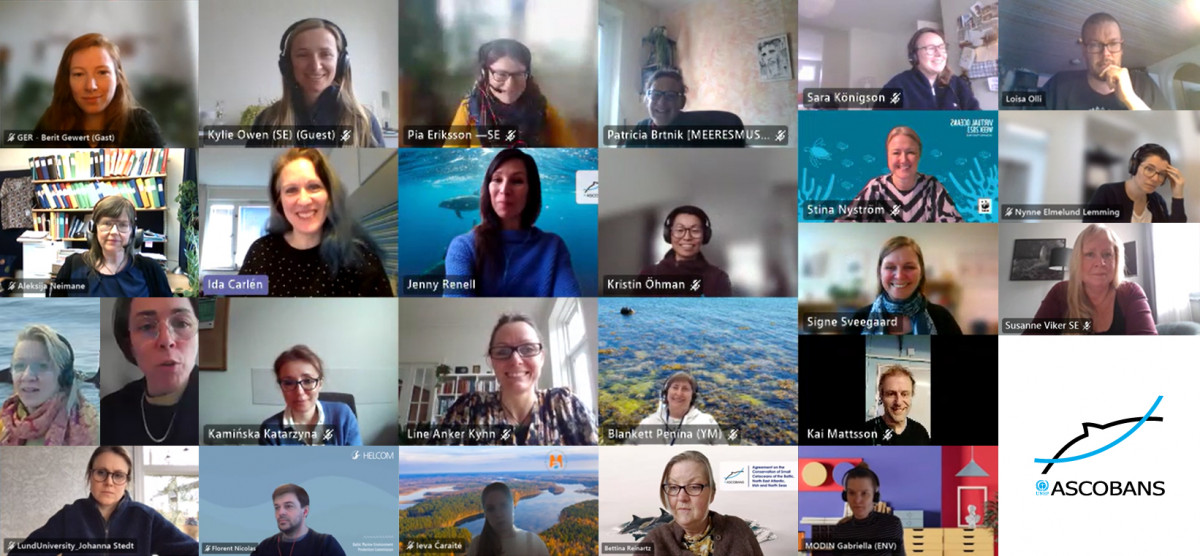19th Meeting of the Jastarnia Group

© Tilen Genov, Morigenos
The 19th Meeting of the Steering Group for the ASCOBANS Recovery Plan for Baltic Harbour Porpoises (Jastarnia Plan) and the Conservation Plan for the Harbour Porpoise Population in the Western Baltic, the Belt Sea and the Kattegat (Western Baltic Conservation Plan) took place online from 20 to 22 March 2023.
Chaired by Dr. Ida Carlén, progress on the implementation of the Jastarnia and the Western Baltic Conservation Plan was discussed. Country representatives provided an overview of national activities to conserve the harbour porpoise since the last meeting (March 2022). It was highlighted that the first fatal case of highly pathogenic avian influenza virus (H5N1) in the Baltic was found in a stranded harbour porpoise in Sweden.
The meeting heard an update on the potential effects of the cod fishing ban along the Swedish coast from 2002-2022. Sweden found that there had been a significant decline in gillnet fishing and commented that they had not seen an increase in cod, and it was commented that there was a similar situation in Poland. It was noted that it would be a slow process for cod to recover and survive with the change in environment.
Three updates were provided from across the Baltic and Belt Seas: the EU Marine Action Plan, Delegated Act to minimise bycatch of the Baltic Proper harbour porpoise, and HELCOM matters related to harbour porpoises.
EU Marine Action Plan, which specifically mentioned the Baltic harbour porpoise, was presented. It covers four chapters: improving gear selectivity and addressing bycatch of sensitive species; protecting the seabed; transition and knowledge; and governance. As Baltic Proper Harbour porpoise populations are expensive to monitor, challenges obtaining funding were discussed including the lengthy administration process for individual countries.
The status of the Delegated Act to minimise bycatch of the Baltic Proper harbour porpoise was discussed with real-time closures and pinger/defence issues being the topics focused on. The inclusion of real-time closures in the Act was discussed and many different opinions were expressed. It was noted that Action Point 19 from JG18 states that “real-time closures/move-on procedure is not considered a measure to mitigate harbour porpoise bycatch in the Baltic Proper, and may be counterproductive because it prevents effective measures being taken.” Then pingers were discussed as they were the main mitigation measure used to minimise bycatch of the Baltic Proper harbour porpoise. However, as the use of them has been inhibited by navies of different countries, the report “Bycatch Mitigation for the Baltic Proper Harbour Porpoise: What to do if pingers are not an option?” was referenced to and discussed.

An Overview of HELCOM matters related to harbour porpoise was provided and it was highlighted that there had been an indefinite strategic pause of all HELCOM bodies and meetings of project groups with Russian involvement since 4 March 2022.
Recent research on the harbour porpoise in the Baltic Proper, Western Baltic, Belt Sea and Kattegat was listed and included: Knowing the fishery to know the bycatch: bias-corrected estimates of harbour porpoise bycatch in gillnet fisheries, Tango project: investigating the impact of relocation of a major shipping lane on harbour porpoises, SCANS-IV Cetacean Survey 2022, and Avian Influenza also can infect cetaceans. Other projects researched the Environmental Impact of Sabotage of the Nord Stream Pipelines and a Line transect study south of Gotland to survey harbour porpoises and two species of seabird.
An update regarding the status of the draft proposal to list the Baltic Proper harbour porpoise to CMS Appendix I was confirmed to be in its final stages.
The Secretariat briefed the meeting about ASCOBANS Working Group (WG) updates including the establishment of an Offshore Renewable Energy WG and a WG on Developing Cetacean-friendly Guidelines for Marine Spatial Planning.
All the Action Points from JC18 were reviewed, with some being updated or deleted. For example, it was decided that funding would need to be requested again from the ASCOBANS Advisory Committee (AC) at its next meeting for the revision of the WBBK Plan, as funding had not been granted at AC27. The JG19 meeting report will be posted on the meeting page in due course.
The next Jastarnia Group meeting is scheduled to take place in-person in March 2024, at the kind invitation of the Netherlands.
Last updated on 11 December 2023


